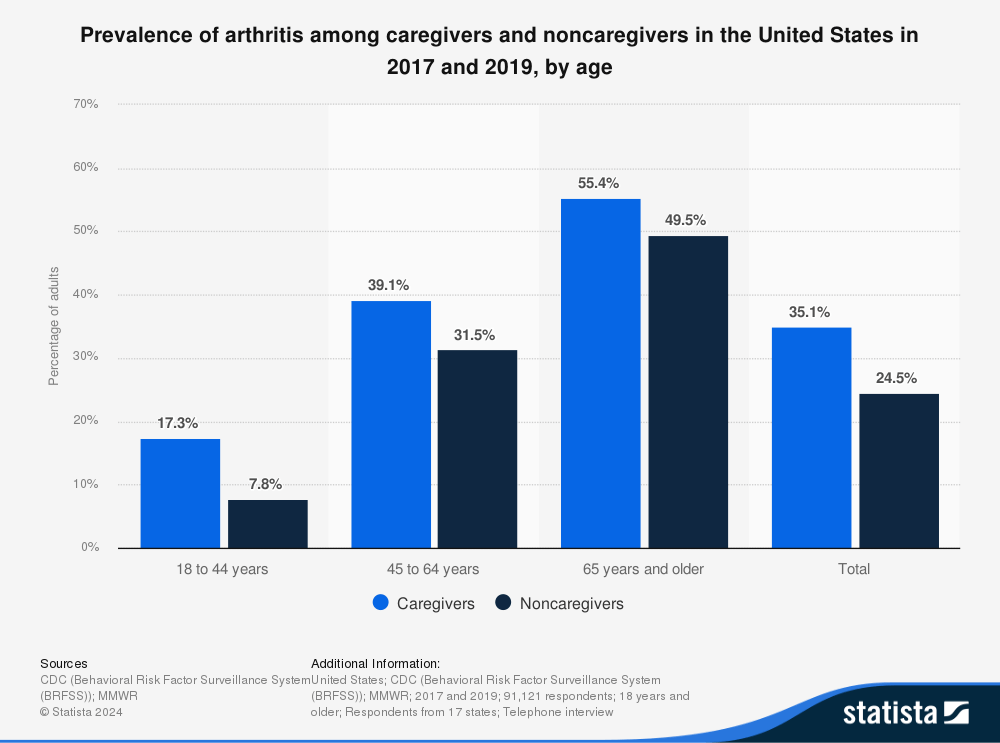
Facing the Cost of Care: Carla’s Story
The financial realities of family caregiving can hit hard.
Just a year ago, Carla’s semi-retired husband Mike was still working part-time at the local hardware store. But his diabetes got worse. Then came the stroke.
Now, Mike needs help with almost everything. Carla helps him bathe, eat and get to his doctor appointments.
The bills are adding up fast. Between Mike’s new wheelchair, home care supplies and gas expenses for all the doctor visits, their nonretirement savings are almost gone.
She tried cutting back on nonessential expenses, but that hasn’t eased her financial burden very much. Groceries and Mike’s meds are essential expenses that just don’t wait.
Carla doesn’t complain. “He’d do it for me,” she says. Still, the worry keeps her up some nights. She prays quietly, asking God for strength …
Navigating Financial Stress While Providing Care
Many caregivers pay out of pocket for medical supplies, travel and daily needs with little help. Over time, these costs add up and can cause stress, fear and even guilt.
Millions of caregivers are walking the same path. This post offers encouragement, practical tips and a few gentle reminders that your well-being matters too.
Let’s look at the cost of caregiving and how to ease the financial pressure while still providing the care your loved one needs.
Understanding the Hidden Costs of Caregiving

Caregiving often starts slowly. At first, you may just need to run a few errands for a loved one who doesn’t live with you. Then, it escalates cooking and delivering meals, helping with doctor visits and more.
Over time, the associated costs grow. It’s not a matter of if this will happen, it’s when.
Here are some common out-of-pocket expenses many family caregivers face:
- Prescription medications
- Home safety equipment, like grab bars or walkers
- Incontinence products and medical supplies
- Transportation to and from appointments
- Meal prep or grocery delivery
- Lost income from reducing work hours or quitting a job
These expenses don’t always feel big at first. But when you add them up over weeks and months, they can create serious financial stress.
Pro Tip: Start tracking your caregiving-related expenses. Even a simple notebook or phone app can help. Knowing where your money goes is the first step to taking back your financial control.
Find financial help you may have missed.
Many caregivers don’t know there are programs that can help. It’s worth the time to explore available resources. Some could cover costs you’re paying for now.
Here are a few places to start:
- BenefitsCheckUp.org – Helps you find federal, state, and local programs like Medicaid, SNAP (food assistance), and utility help.
- Veterans Affairs (VA) – If your loved one is a veteran, the VA may offer caregiver support, respite care, or a monthly stipend.
- Area Agencies on Aging (AAA) – These local offices can connect you with free or low-cost services in your area.
- State Family Caregiver Support Programs – Some states provide training, counseling and small grants to help cover caregiving costs.
Trust me. Help is out there. I found out that often you just have to know where to look. Read more about my experience with BenefitsCheckUp.org.
Pro Tip: Don’t be afraid to ask questions. Contact your local senior center or social services organization. They’re equipped to help you find what’s available.
Set boundaries with your budget — and your heart.

When you love someone, it’s hard to say no. You may feel guilty for not doing or giving more. But you have to take care of yourself too.
Creating a caregiving budget can help you continue giving care without burning out or going broke.
Here’s how to get started.
- List all caregiving costs for the month.
- Set a spending limit based on your income.
- Look for expenses you can cut or find alternatives. For example, can you access free transportation services or buy medical supplies in bulk to reduce their overall costs?
- Revisit your budget monthly.
Also, be honest with family members. Let them know when the increasing expenses become too much for you to handle alone. Ask if they can help, even in small ways.
Could someone pitch in for groceries once a month? Could another family member cover one medication cost?
Pro Tip: Use “I” statements when you talk to family. For example, “I’m finding it hard to keep up with some of the costs. Could we talk about ways to share the expenses?”
Small Money-Saving Habits That Add Up

You don’t need to overhaul your whole life to ease financial stress. Small changes can lead to big relief over time.
Here are some budget-friendly ideas:
- Buy generic items. Store-brand medications and products are often much cheaper than name brands.
- Use community services. Some churches or nonprofits offer free meals, transport, or help with chores.
- Plan meals well in advance. Weekly meal planning can save on food waste and last-minute takeout.
- Set up auto-refill prescriptions. This prevents missed doses and extra trips to the pharmacy.
- Ask about senior discounts. Many stores offer discounts, even on medical supplies.
You’re doing your best. Finding ways to save on caregiving costs doesn’t mean you have to sacrifice quality or your loved one’s safety. Saving is a way to care for yourself as much as you care for others.
Start managing the financial stress of caregiving today.
Caring for someone you love can feel like a full-time job on top of everything else you already have going on in your life. It’s okay to feel overwhelmed by the cost of caregiving. That’s human.
Start with a phone call, a budget plan or a conversation with your family. Each step moves you closer to relief.
Managing the Stress of Caregiving Costs FAQ
What are the average costs of family caregiving?
Many caregivers spend around $7,000 to $10,000 per year out of pocket. Costs vary based on medical needs, supplies and any lost wages.
Can caregivers get paid for their work?
In some cases, yes. Some Medicaid programs and the VA offer payments to family caregivers. Check your state’s programs or talk to a social services organization.
How can I ask my family for financial help without feeling guilty?
Use open, honest communication. Focus on the shared goal of caring for your loved one. Start with small asks and build from there.
Are there free resources for family caregivers?
Yes. Local area agencies on aging, nonprofits and faith-based groups often offer free support, classes or supplies.
What’s one thing I can do today to reduce financial stress?
Start tracking your caregiving expenses. Awareness is the first step toward taking back control and asking for help.






